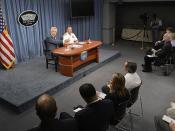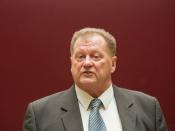Chief executive officer is the most important figure in strategic managementprocess. S/he plays many roles in an organization. Planning, organizing,leading, and controlling are the major parts of management activities that amanager performs. Actually, strategic management is the top-levelmanagement. It covers all the management functions because it starts fromplanning such as environmental analysis and strategic choice, associated withorganizing and leading in implementation phase, and lastly also evaluates andcontrols the results. Similarly, CEO also uses his or her conceptual, humanrelation, and technical skills in strategic management process.
CEO is the head of employees and major executive representative of board ofdirectors. He or she plays vital role to make amicable relationship withcustomers, competitors, suppliers, and other stakeholders on the behalf oforganization. Generally there are many other titles used for this position suchas managing director, executive chairman, vice chairman, and executivedirector.
Generally, chief executive performs general management functions namelyplanning, organizing, leading, and controlling. It is a never ending and cyclicprocess.
Chief executive requires various types of skills such as conceptual,human relation, and technical skills. Top-level managers require moreconceptual skills whereas bottom level employees require more technicalskills. Nevertheless, a CEO requires all the skills to be an effective manager.
Mintzberg listed role of CEO in ten points and grouped them into three. A CEOgenerally plays many roles such as figurehead, leader, and liaison as theinterpersonal role. S/he collects information, circulates information, andprovides information to media as the part of informational role. Further, s/healso takes part in decision making, negotiating, disturbance handling andresources allocation as the part of decision-making role.
A CEO not only attends many ceremonies being a figurehead but linksinsiders with outsiders and guides his or her followers. Informational role isrelated to monitoring information, collecting information, and disseminatinginformation. A CEO regularly verifies what is going on outside and inside.
Similarly, s/he gathers all the...


